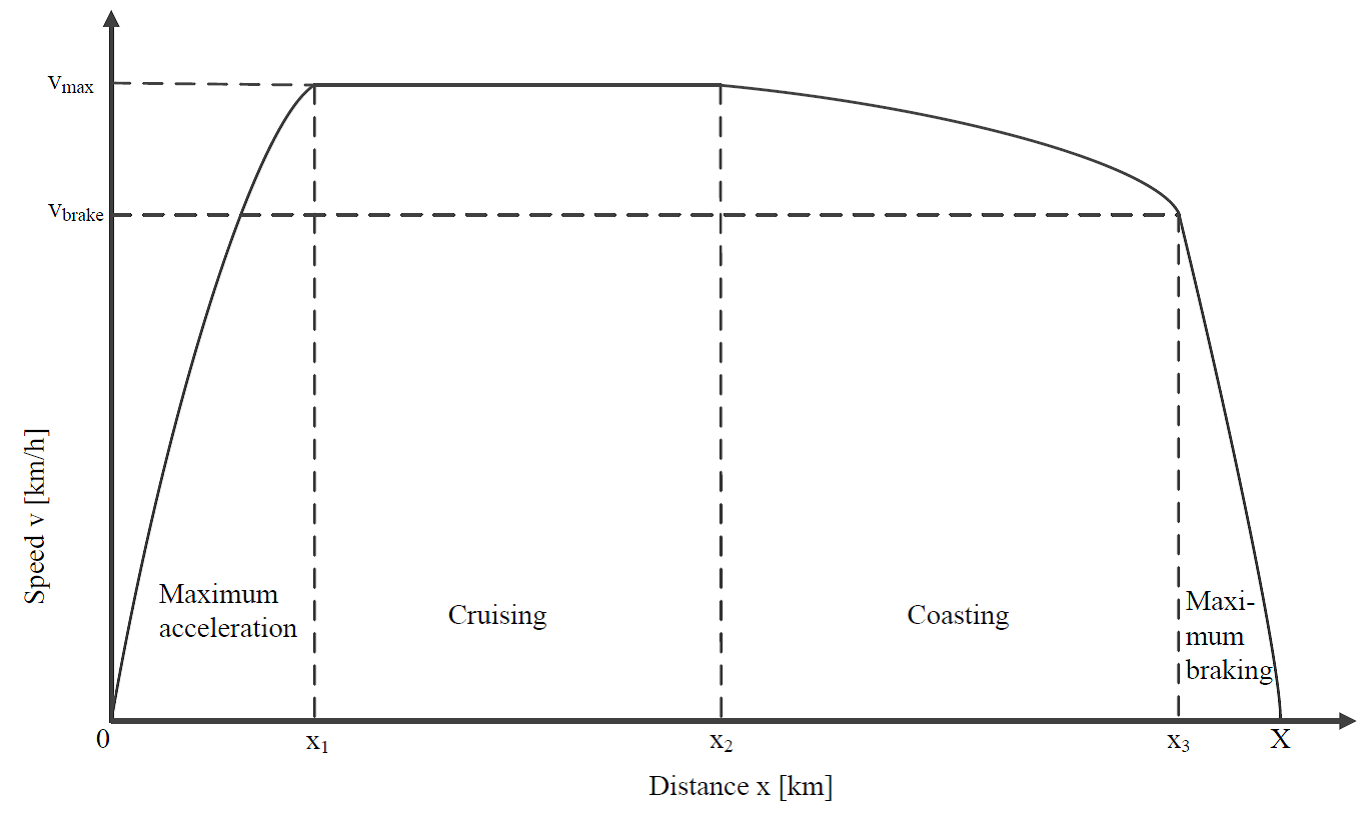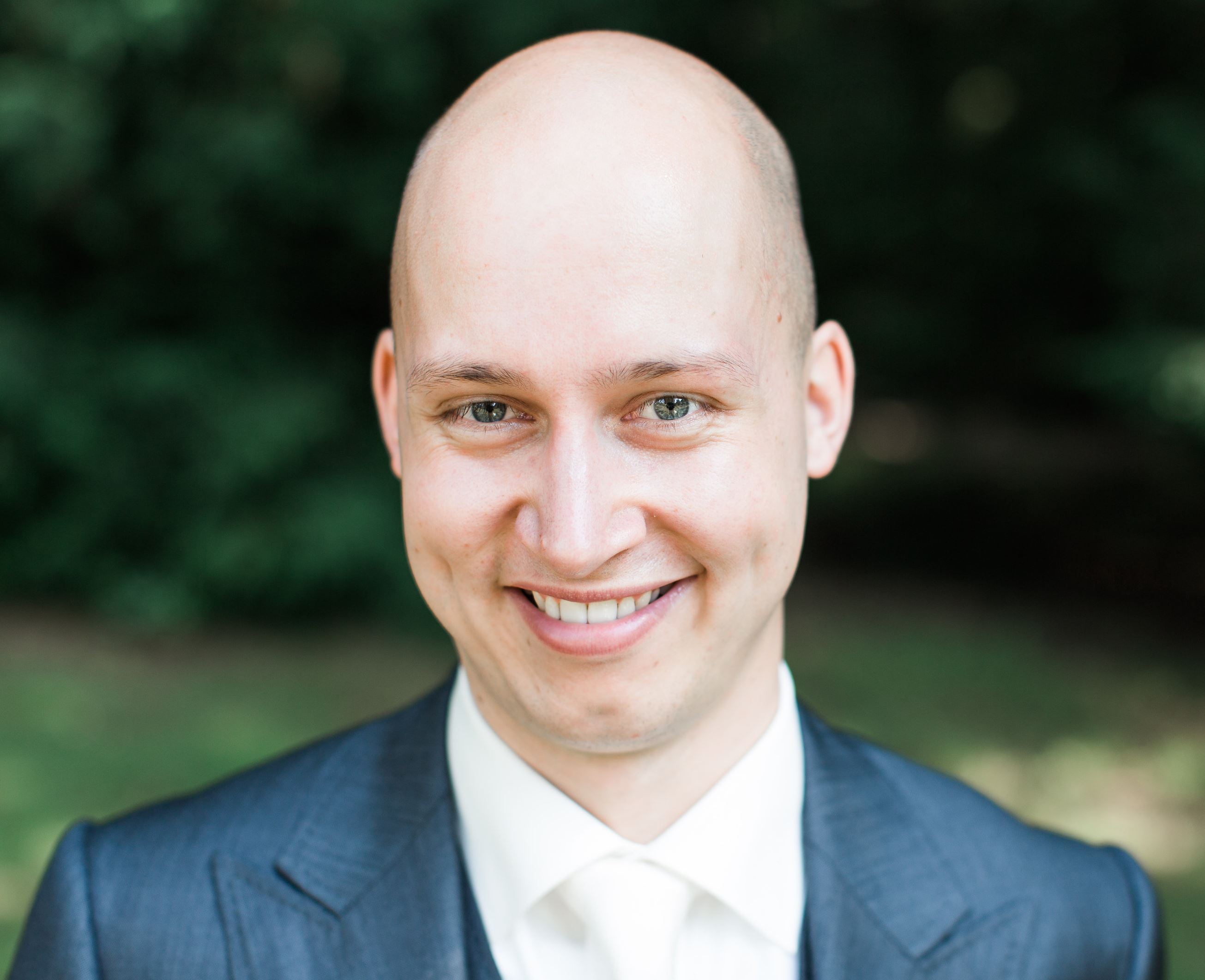Energy-efficient train timetabling
Subject
Energy consumption is an important topic nowadays, also in the railway sector. A lot of money can be saved by decreasing the energy consumption of the trains. Besides, there are external benefits like decrease in CO2 emission and noise hindrance. At Netherlands Railways (NS) a lot of attention is paid to energy-efficient train control (EETC). EETC is aimed to minimize total traction energy of a train by using the control variables traction and braking. By applying optimal control theory this leads to the following basic optimal driving strategy consisting of the driving regimes:
- Maximum acceleration;
- Cruising or speed-holding;
- Coasting, and;
- Maximum braking.

Scientific challenges
The main challenge is to determine the optimal switching points between driving regimes. Moreover, the problem can be extended by including speed limits, varying gradient profiles and regenerative braking. EETC is the first topic considered in this PhD research.
However, more energy can be saved if EETC is incorporated in the timetabling process, in order to develop energy-efficient train timetables (EETT). The main challenge for EETT is to find a multi-objective timetable that minimizes total travel time and total traction energy and maximizes punctuality. This is the second topic considered during this PhD research for NS.
Societal relevance
EETC and EETT decrease the total energy consumption of trains, which reduces the total amount of CO2 emissions. Since CO2 emissions contribute to the world-wide problem of global warming, this research helps to decrease the effects of the railways on global warming. Furthermore, EETC reduces the noise hindrance and wear and tear of the tracks and wheels, it improves the comfort of passengers and contributes to punctual train running. EETT helps to generate realistic running times for the train driver and to apply EETC.

Gerben ScheepmakerStart/end date: 01-03-2014 - 28-2-2018Daily supervisor: dr. Rob M. P. Goverde (TU Delft) and prof. dr. Leo G. Kroon/dr. Ramon M. Lentink (NS) Promotor: Serge Hoogendoorn |